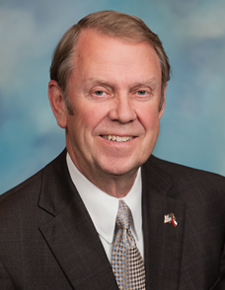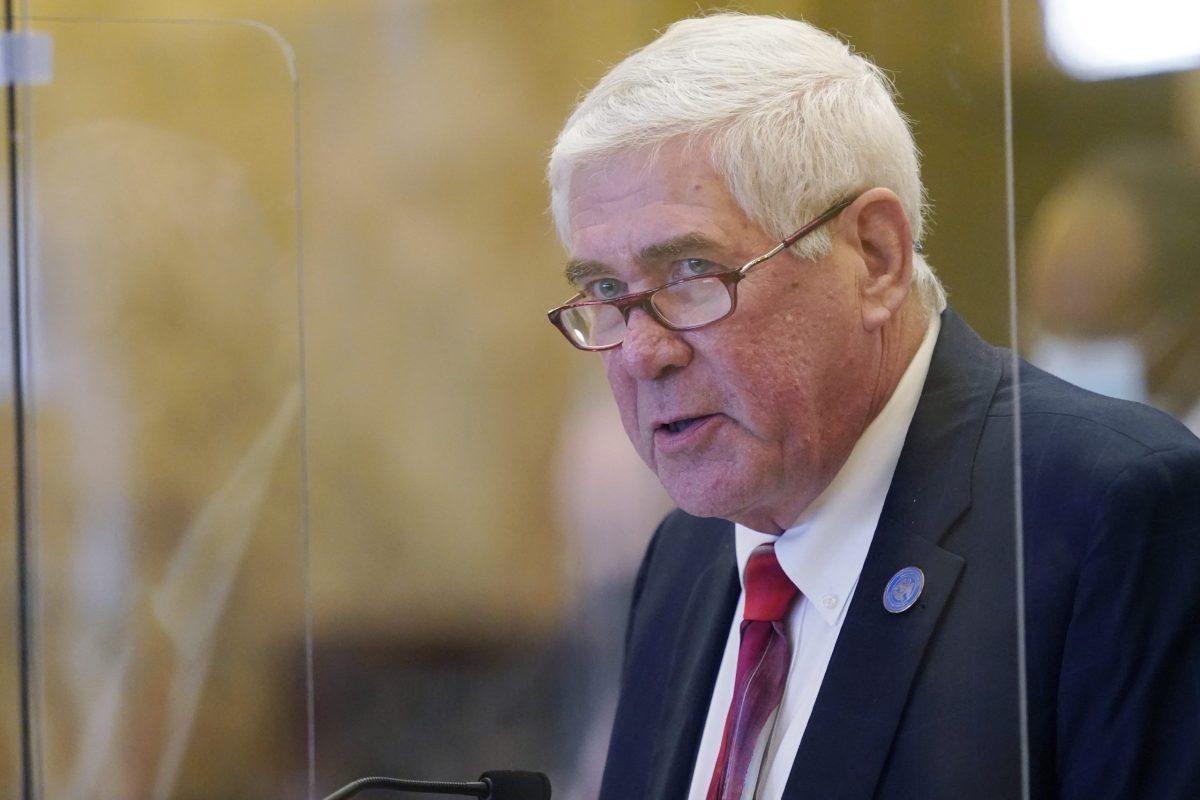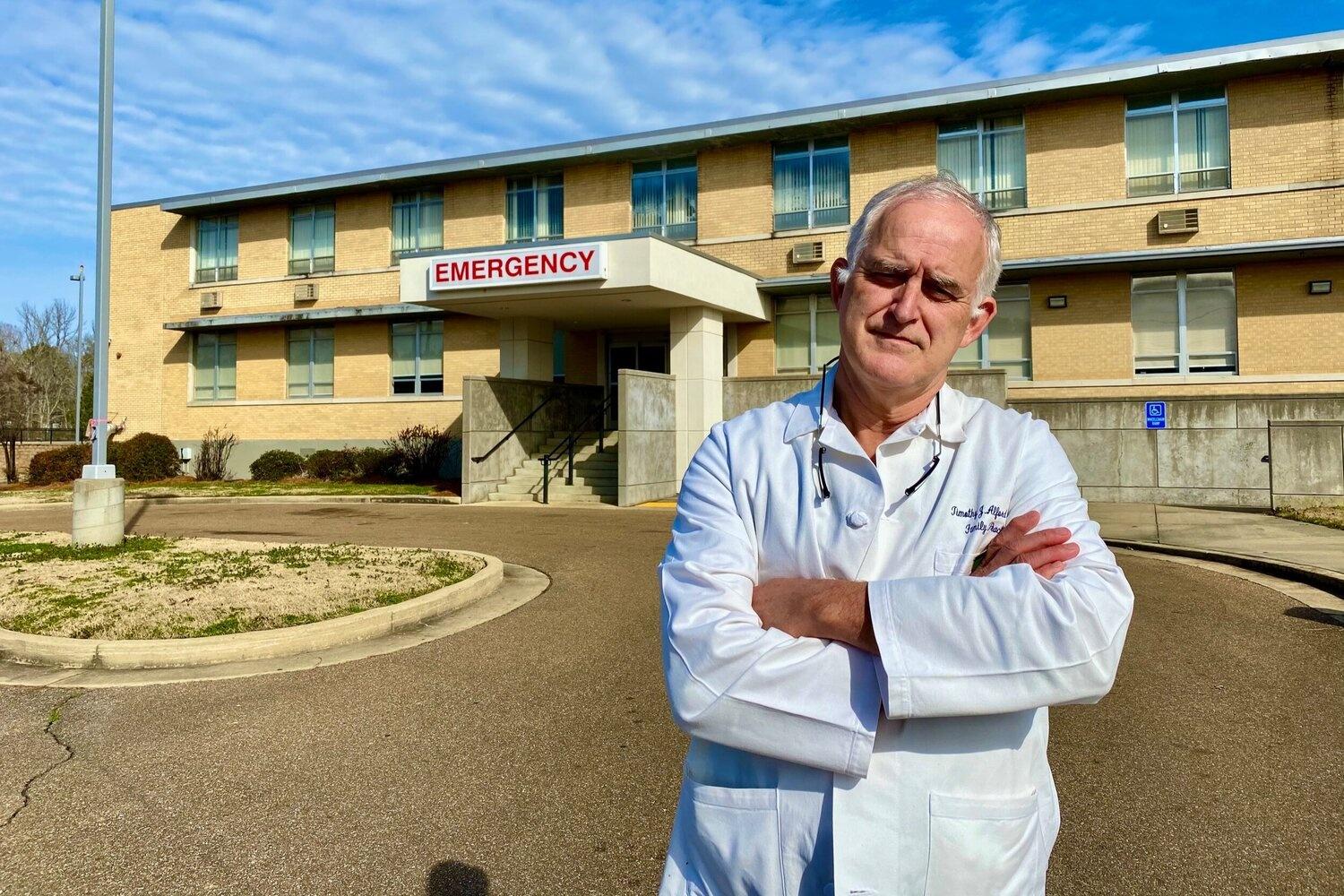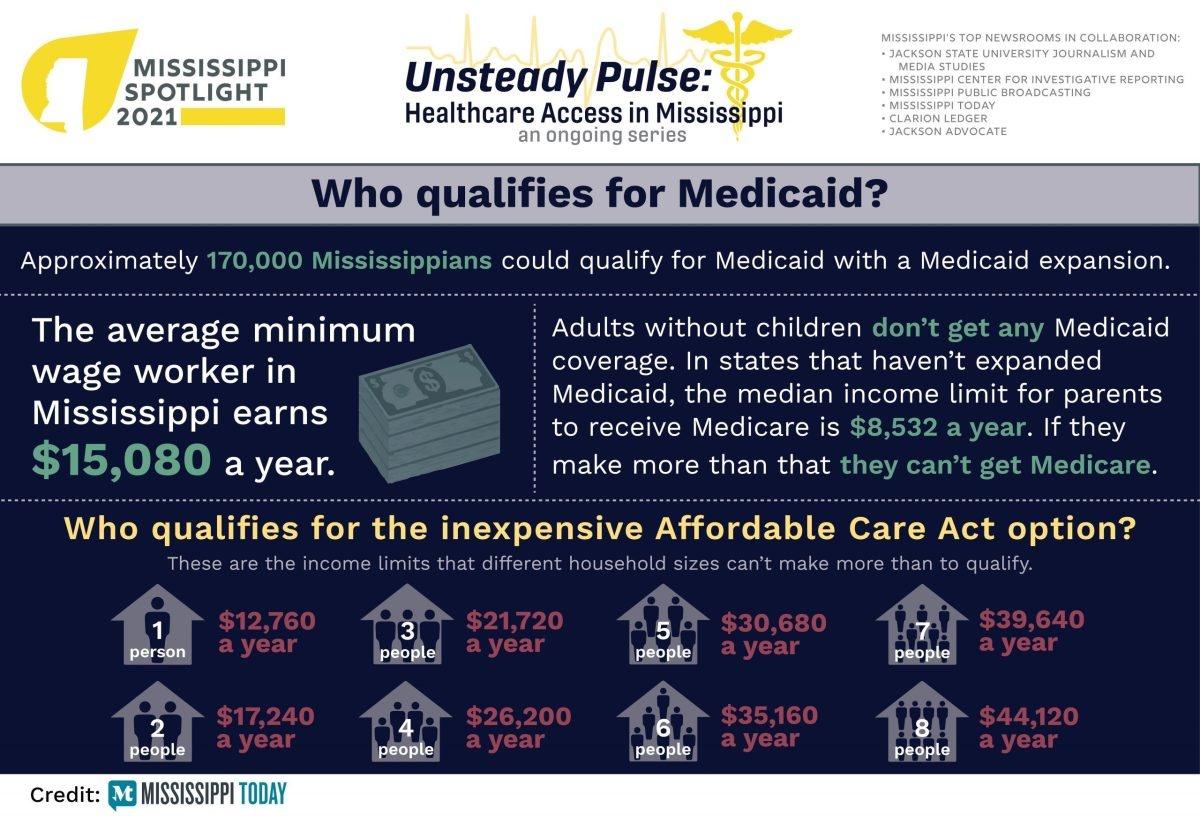How is the expansion under the latest relief package different than the existing expansion option?
Insurance Commissioner Mike Chaney: The federal government puts up 80 cents of every dollar that we spend on Medicaid and the state government puts up 20 cents of every dollar we play. If you go with expansion, the state would put up five cents for every dollar the federal government gives us. So, the feds would give us 95 cents and would put up five cents. The danger is many people feel like that with all the pandemic expenditures - the CARES Act expenditures and all the other issues that have come up requiring unexpected expenditure as well - there will not be enough money left to sustain an expansion of Medicaid for more than another 24 months. And if Mississippi does not expand Medicaid this year, then it's very likely that we will not expand it in the next year either.
How long would the government pay 95% of the Medicaid tab, and would it gradually decease once that time exprired?
Commissioner Chaney: They have guaranteed at least 24 months of payment at 95%. It's not set in stone as to what the expansion dollars would be after 24 months. The present match is close to 92 for those states that did expand Medicaid, so I don't think it would drop below that. But the deal is Mississippi is, if Mississippi is already getting only 80 cents and paying 20 cents on the dollar, and if we only had to pay 8 cents on the dollar, it would be a better deal if you'd looked at expansion. And one thing I want to say: Medicaid expansion is not about putting people on the welfare roads. This is about expanding healthcare availability to those people that make 138% of the poverty level or less. And that's about 300 to 400,000 people in this state. They're the poor, those with AIDS, the infants, the disabled, the folks that fall through the cracks that are not able to get on the Affordable Care Act and not able to qualify for Medicaid as it exists now.
How do they fall through the cracks? These are working adults, or - as you said - disabled or aged or infants. Give us a picture of who these people are and why they don't qualify.
Commissioner Chaney: When the Affordable Care Act was passed, the law specifically people that are 100% of the poverty level in the United States could not buy an insurance policy on federal marketplace. And they have to either not have any insurance at all, or you cover them by expanding Medicaid. Of course, at that time, many States chose not to expand Medicaid. And at the beginning of January of 2021, which is now almost nine years after the fact when Medicaid was first put up for expansion, we have 14 States that have not expanded. And today in March of 2021, we now have 12 States that haven't expanded Medicaid.
So, to make it real simple; if you have one person, the federal poverty level for 2021 is $12,880. If you have a young mother who's pregnant - a pregnant female qualifies as two people - that would be $17,420 a year at the poverty level. These people cannot buy insurance on the Affordable Care Act. And if you know the income, they certainly cannot expand private insurance because they can’t afford it.
Those Mississippians who get insurance through the Affordable Care Act, is their insurance subsidized to some extent by the federal government?
Commissioner Chaney: From 100% of the poverty level to 400% of the poverty level, there is a tax credit that goes to anyone that purchases insurance from the federal marketplace. In Mississippi, 85% of the people that are on the Affordable Care Act plans - and that's one of the two plans, Molina or Magnolia -get a subsidy from the federal government in the form of a tax credit. That would continue onto the proposed plans for the present administration to expand Medicaid. Those tax benefits will also increase. And that's another concern for the leadership in the states that have not expanded Medicaid because they are worried there will not be enough money left to expand Medicaid to pay for it.
Somebody who makes $16,000 a year makes too much money to be able to get insurance through the Affordable Care Act or enroll in Medicaid.
Commissioner Chaney: They're too poor - too poor - to get on the Affordable Care Act. If you make less than 138% of the poverty level (and 138% is all about $20,000 a year for a family of two), you cannot buy on the Affordable Care Act. You just can't do it; it's against the law. Now, there is a way around that if you can get something called a 1332 waiver out of the federal government. And many states have done that. So, Mississippi developed a plan - back when the ACA was first proposed - to take the Medicaid dollars and purchase private insurance and give that to folks. And that would include anybody below 400% of the poverty level. But we were turned down. You had to have the governor's signature to do that, and the governor at that time said they did not trust the federal government to continue funding the programs. That is proven to be wrong. They did continue to fund them, and we did not follow the plan. We gave the plan back to the various States that wanted to use it. That was Idaho, New Mexico, Arkansas, Indiana - and Indiana expanded using basically the Mississippi plan and Arkansas did too with a few modifications.
The Mississippi Hospital Association has a way to pay for Medicaid expansion. So, in essence, it wouldn't cost the state anything with their plan?
Commissioner Chaney: The Hospital Association’s plan is dependent upon hospitals putting up a percent of the match that was required under the federal government guidelines. And that match would be $20 per month from the hospitals - or a tax on the hospitals. I think the best way to do this is if the state bellies up to the bar and puts $50 million up. That's a $915 billion expansion. And know that the most you would ever pay would be a $100 million on the expansion because the government does say that you will always get 90% of the cost on expansion. If you Google “Medicaid expansion”, you will find that 14 states initially that refused to adopt Medicaid expansion know that the federal government will always pay 90% of the costs. They have guaranteed that. So, the Hospital Association’s plan’s fallacy was you had to have another tax to make the plan work. And a lot of legislators and people in leadership roles in the various states - including Mississippi - decided they didn't want another tax on hospitals. What we have proposed is a different bifurcated product with our commercial insurance plan, and to make the networks use the rural hospitals in our state - which already helped physicians there. And it would maintain the rural hospitals and keep them whole without having to put more money into the rural hospital system. And it would allow people access to healthcare throughout the Delta and the other parts of the state that are considered rural.
Hospitals, especially rural hospitals, as it stands now have to foot the bill for those who don't have medical insurance. Is that right, and is that causing undue stress on those hospitals?
Commissioner Chaney: Under our laws in Mississippi, if you going to go to the hospital, they cannot refuse to serve you. If you go to the emergency room, they must see you. And actually, we spend more at the emergency rooms trying to take care of the uninsured than we would spend if we had a different plan. And that plan would be something like a policy for all those under 138% of the poverty level.
We have two or three companies that are vendors of Medicaid in Mississippi. What if the state were to expand Medicaid? Would that bring other insurers in or would the companies we have currently be able to handle that expansion?
Commissioner Chaney: I think the companies that we have now could handle the expansion, but it would bring other folks to the table to try to expand healthcare insurance within the state. And it's no secret that at the department I have met with at least five companies looking to expand health care within the state, but that's a long process. It takes 24 months to get someone ready to expand healthcare within the state of Mississippi. It's just not something you can do within a month or two. And that's tough. Now, I will say the Kaiser Family Foundation. If you want to do a fact check on what the commissioner is talking about, you can go and look at Kaiser Family Foundation. They have predicted that Mississippi would help lost $24 billion - that's billion, that's over almost five times what our annual budget is for the state - in benefits by not expanding Medicaid by the year 2024.







